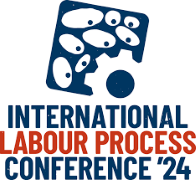This globally recognized event serves as a nexus for scholars, researchers, and practitioners from diverse corners of the world to engage in profound discussions and explorations of various facets of work, employment relations, and labour processes. Since its inception in the 1980s, the ILPC has consistently provided a robust platform for fostering interdisciplinary dialogue. This year marked the 42nd edition of the conference, drawing together a vibrant array of scholars spanning disciplines such as sociology of work, industrial and employment relations, organization and management studies, feminism, and political economy. The conference program was rich and diverse, covering a broad spectrum of topics, including automation, technology, worker’s alienation, migration, working-class resistance, industrial conflict, gender & work, and the impact of European policies on the labour market. Each presentation contributed to a nuanced understanding of the complexities inherent in contemporary labour processes, offering fresh perspectives and innovative approaches to addressing the challenges of the modern work environment.
Zuzanna Kowalik showcased a collaborative working paper authored by Piotr Lewandowski (IBS), Tomasz Geodecki (Cracow University of Economics), and Maciej Grodzicki (Jagiellonian University) during the conference. This paper delved into the compelling topic of automation’s impact within Shared Services Centres (SSCs) on workers’ skills and autonomy. The authors drew upon Braverman’s labour process theory (LPT) – a theoretical framework that posits automation as a force driving deskilling. According to LPT, automation compels workers into specialized, repetitive roles, eroding their overall proficiency and autonomy, ultimately leading to deskilling, job dissatisfaction, and disengagement. Such processes have also been observed within SSCs, where informatization, standardization, and softwarization have transformed professional roles into predefined, often simple procedures, eliminating the requirement for specialized skills or insights. The presented study sought to discern whether the current wave of automation reinforces or reverses this prevailing trend.

